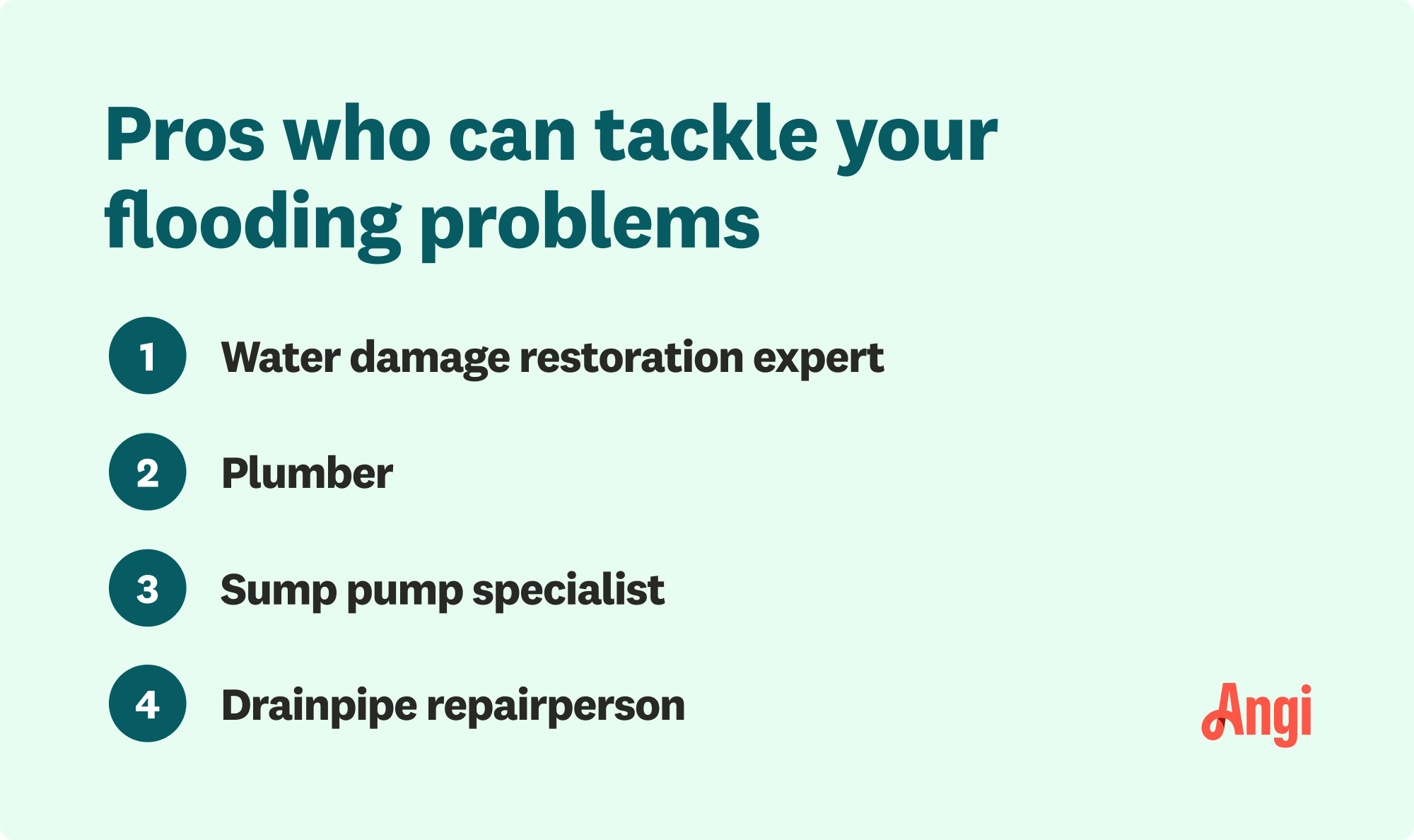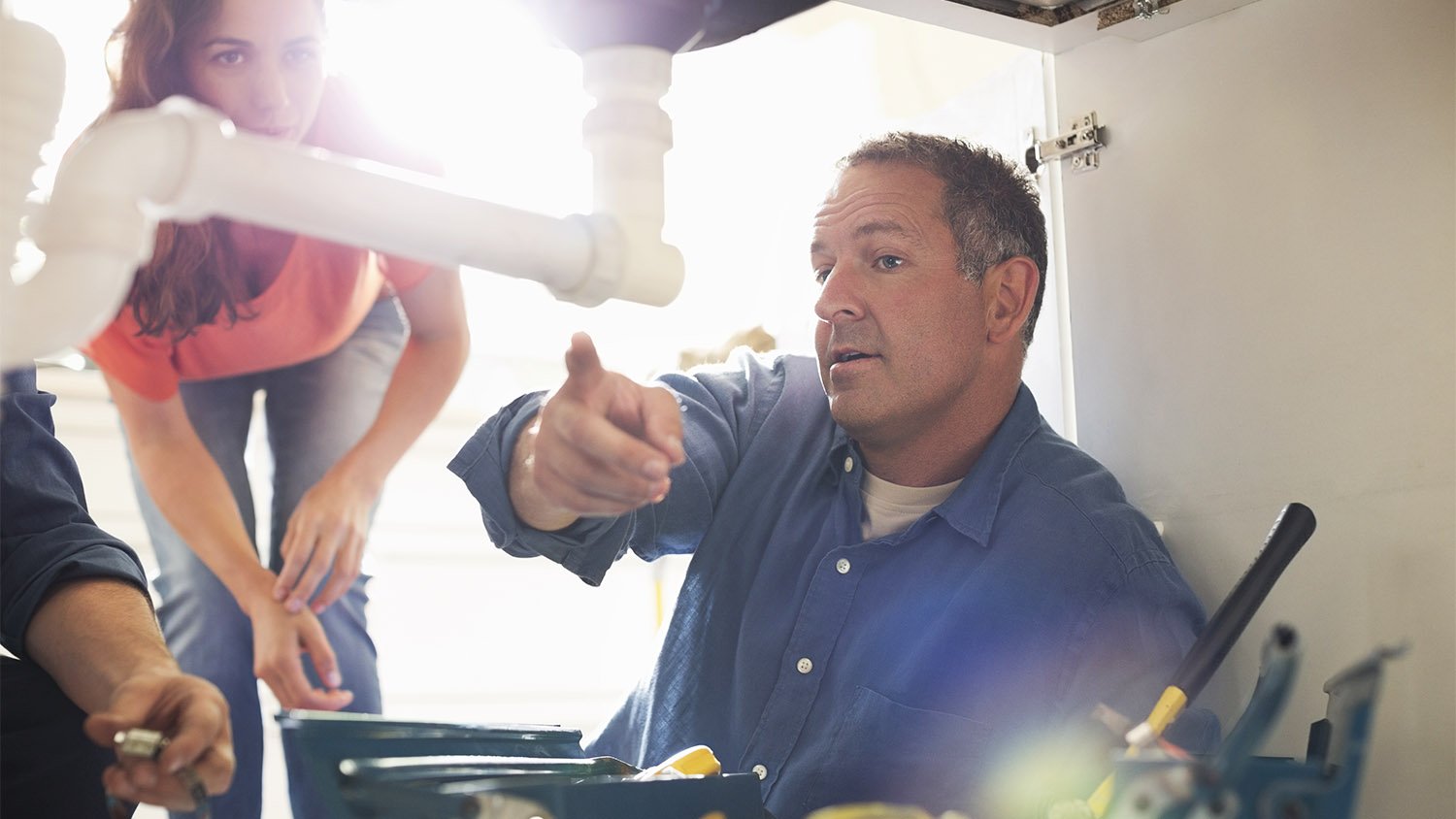
Fire damage restoration costs vary widely based on the extent of the damage. Learn how to assess your home and estimate your total after a fire.
Knowing who to call for flooding problems can help keep your head above water


Flooding problems are a common concern for homeowners. Whether they’re caused by a severe weather event, such as a storm or a hurricane, or they happen because of poor drainage or a malfunctioning water heater component, the result is often the same: costly water damage that can ruin your home.
But do you know who to call when your house floods? If you’re in an emergency situation caused by a natural disaster, call 911. For any flood that’s not life-threatening, contact a local water damage restoration specialist.

Getting timely service is key when your house floods. While there are quite a few people you should get on the phone, a good place to start is hiring a water damage restoration expert, and there are a few key reasons for that.
They tend to respond the most quickly: Flooding in your yard or home can cause significant structural damage, leading to costly repairs to your foundation, walls, and roof. Water damage specialists usually handle emergencies, so they’re the most likely to be able to get to you quickly to mitigate the damage.
They tackle everything from start to finish: Water damage specialists have the equipment and experience to stop major leaks, remove standing water, dry out your living space, and even carry out repairs and build-back. Most other professionals will only be able to tackle parts of the job.
They may be able to work with your insurance company: Water damage restoration specialists very often handle work covered by insurance. They’ll likely be familiar with classes of water damage and insurance protocols that can help expedite the approval process.

If you know that the water in your home is coming from a major leak in your water main or drain lines, you can call a plumber or a local drain pipe expert to stop the leak. Most pros will also be able to pump out standing water if your basement is flooding. However, they’re less likely to be able to respond quickly to emergencies than a water damage specialist, and they won’t handle build-back to restore the interior of your property, whether you’re dealing with plumbing water damage or flood damage.
When you call a water restoration expert, they’ll first identify the source of the leak and stop it. Next, they’ll bring in specialized equipment such as industrial blower fans and water pumps to tackle the initial clean-up and remove as much standing water and moisture as possible.
They’ll then remove damaged materials and clean and sanitize the area to take care of mold growth caused by the leak, and they’ll repair or replace materials to restore your home’s interior to its original condition.
The scope of the repairs will depend on the extent of the damage and your restoration budget. Ensure that you get a thorough, itemized estimate and a detailed work contract before you begin any restoration project, which you can also submit to your homeowner's insurance if you have flood coverage.
Water damage is most commonly associated with basement flooding, accounting for 41% of related pro visits. Other typical issues include wet flooring, carpets, and building materials. In rare cases, upper floors of the home may experience flooding (6.4%).
The average cost of water damage restoration is $3,800, and most projects fall between $1,350 and $6,300. Your total will depend on the extent of the damage and the quality of the materials you need to replace. Some homeowners pay as much as $16,000 for repairs after flooding. Keep in mind that there’s a good chance your homeowner’s insurance will cover all or part of the cost.
Flood damage can very quickly get expensive, and the expense is usually an unexpected one, so it may be tempting to tackle the work yourself. This isn’t a good idea for a variety of reasons. First, standing water in a home that’s fitted with electrical wiring can be dangerous and even deadly to work with. You could rent equipment to pump the water out and dry the area, but it’s best to leave the work to a pro to keep yourself safe.
Mold can set in quickly if you don’t get your living space thoroughly dried out, and working with mold can also be dangerous. Finally, the build-back required is labor-intensive and best left to a professional to ensure your home looks as good as new again.
Taylor Sansano contributed to this piece.
From average costs to expert advice, get all the answers you need to get your job done.

Fire damage restoration costs vary widely based on the extent of the damage. Learn how to assess your home and estimate your total after a fire.

Fire hydrant costs might not be an expense you think about day-to-day, but they’re important to consider for the safety of your home.

Your dry rot repair cost will depend on factors such as the extent and size of the damage and its location within your home. Here's what you need to know.

Buying a house in a flood zone can pose a risk, but it’s not always a bad idea. Check out our tips to make sure you stay protected when moving.

Not sure what to do after a house fire? Our guide will walk you through immediate and long-term recovery steps.

Learn how smoke can impact your home and health, and explore effective strategies for cleaning and prevention